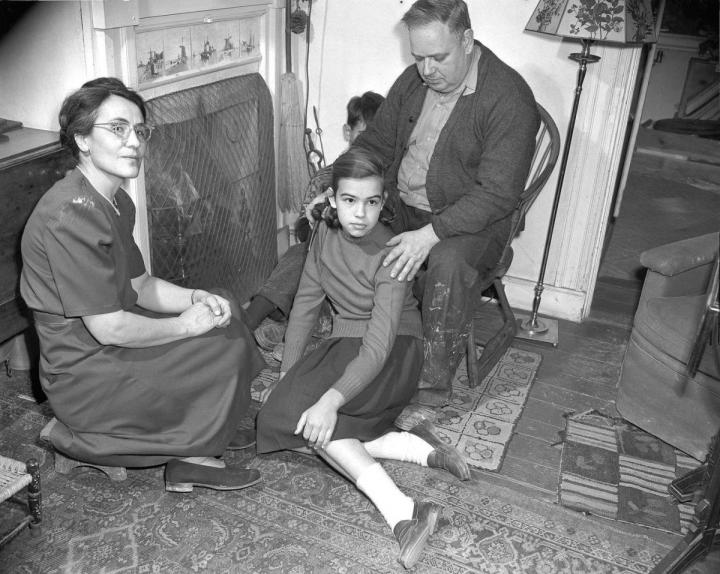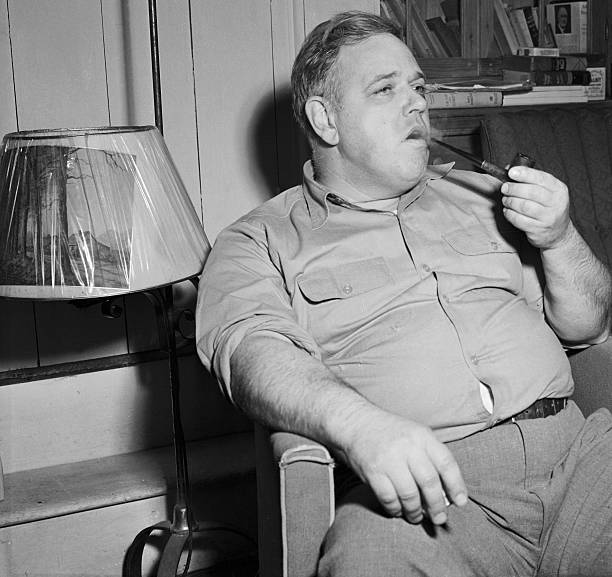How do we respond when we think we are on the edge of death? It happened to me once in a car accident on a lonely, and icy, country road. As my car careened across the middle line straight into the headlights of a car coming from the other direction (we were the only cars anywhere in sight), I wondered if this was it. Was I ready spiritually to be face-to-face with my Lord?
As I was teaching my course on Whittaker Chambers this past semester, one passage in his autobiography, Witness, stood out to me in a new way. It’s not that it didn’t have meaning before, but there are times when the Spirit of God focuses one’s attention and one grasps the meaning better than before.
The passage occurs in the chapter called “The Tranquil Years” when Chambers was a key writer and editor for Time magazine. He had wrenched himself from his communist past and was attempting to do two things: alert people to the underground communist threat and live as normal a life as possible for the sake of his family. He had bought a farm in Westminster, Maryland, and commuted back and forth from there to New York for his job. The farm and his family meant everything to him.
His life had changed in the most profound way also—more significantly than devotion to family, farm, and message. He had surrendered his life to the Lord after abandoning his communist beliefs. The depth of that surrender was tested when he faced his moment of imminent death.
Chambers had a penchant for throwing himself so much into his work that he seldom took time off. That overwork finally caught up with him in the form of pains in his chest that shot down into his left arm. He relented to see a doctor when the pain became too intense to handle. The diagnosis was angina pectoris; the solution was immediate, absolute rest.
“I had never rested in my life. I did not know how to rest,” Chambers confessed. He disobeyed the doctor’s orders one day by trying to participate in sanding a cabinet. “In half an hour, the problem of how to rest was settled for me. I went to bed. I did not get up again for several months.”
Then came the moment of truth. As C. S. Lewis wrote in his very personal book, A Grief Observed, “You never know how much you really believe anything until its truth or falsehood becomes a matter of life and death to you. It is easy to say you believe a rope to be strong and sound as long as you are merely using it to cord a box. But suppose you had to hang by that rope over a precipice. Wouldn’t you then first discover how much you really trusted it?”
Chambers came to that moment.
My illness was memorable for one incident. I awoke one night about two o’ clock in the morning. My heart seemed to be swelling out of my chest and I could scarcely breathe. I thought that that was probably the crisis.
My first instinct was to call my family. Then I thought: “No. There is nothing that they can do for me. Why should their memory of me be one of fear and pain, instead of the peaceful good night that we have already said?”
But he was troubled about his family’s future without him. What would become of them?
“Then I realized that I had reached a point in experience where I could do nothing at all about them or about anything else in the world. They and all of life were completely beyond my help and therefore my concern.” Realizing that reality, he put himself totally in God’s hands. “I said the simplest of prayers and felt complete peace in surrendering myself, my wife, and children to God.”
Chambers recovered and went back to his job at Time, but confesses in Witness that as he was writing it, “of late, after a lapse of years, the paralyzing pains have returned again.” Yet there was a difference this time: “Only, now, they have lost their power to make me anxious in any way.”
That’s what faith in a loving, caring God should do. Ultimately, a decade later, Chambers succumbed to that final, fatal heart attack, but by then, he was at peace with the possibility that his entrance into eternity could happen any day. That’s where we need to be—ready at any moment to transition from this temporary life into that which is everlasting.


